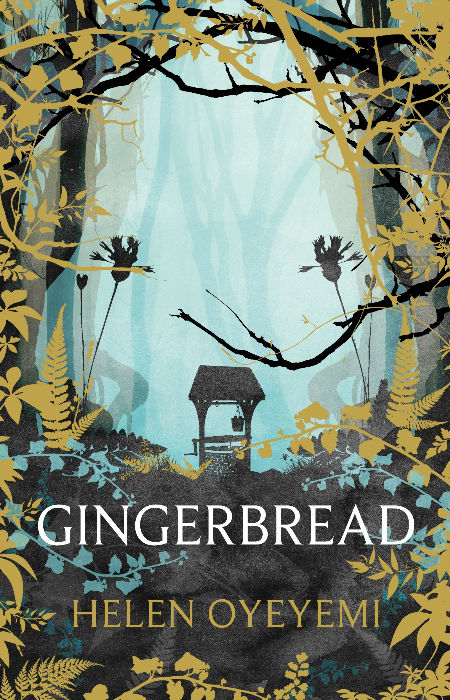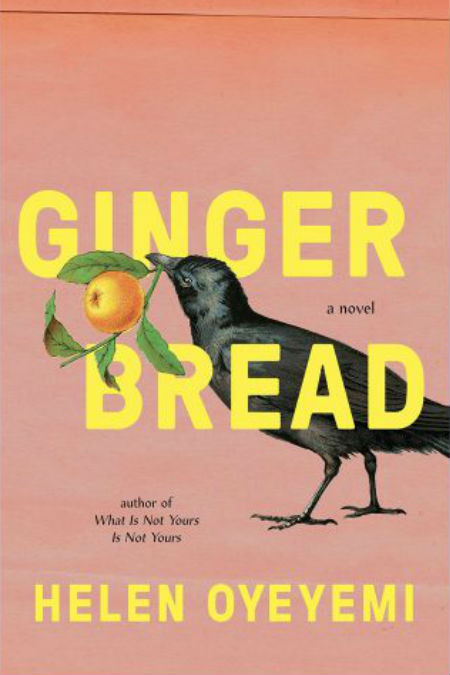
If you have ever wondered if there is magic lurking within and without the banal cruelties of everyday life, if it is possible for dolls to talk and make active narrative companions or for apartments to change their architecturally-decreed configurations at will, then you need to dive a delicious deep dive onto the world of Helen Oyeyemi’s Gingerbread.
And delicious it will be, even if the titular gingerbread can often leave a baffling or bitter aftertaste, not so much the sugary comfort food of which we have come to think so much as an instrument of weirdly-destructive nostalgia or aborted friendship engendering.
Dedicated to exploring further the preponderance of gingerbread in many a tale, fairy-oriented or otherwise, Gingerbread is signature Oyeyemi – not so much a tightly-structured narrative that goes willingly from point A to point B as a buffet of ideas and images, sensations and emotions, all of whom described in prose so indescribably lush and vivid that you stand in awe that anyone could craft sentences to mesmerisingly-beautiful.
That may sound gushingly-hyperbolic but it’s not; in fact, Oyeyemi’s gift for bringing words together in ways that are both enticing to read and replete with rich meaning is extraordinary, leaving you re-reading passages not because you have drifted off or haven’t quite inhabited them fully enough, but because you don’t want to leave them behind.
But never mind if you do because there is another passage just like that, and another and another, all of them strung with gilt-edged, imaginatively-crafted words that together create one of those reading experiences so sensorily-delectable that simply being with them is enough.
“A gingerbread addict once told Harriet that eating her gingerbread is like eating revenge. ‘It’s like noshing on the actual and anatomical heart of somebody who scarred your beloved and thought they’d get away with it,’ the gingerbread addict said. ‘That heart, ground to ash and shot through with darts of heat, salt, spice and sulphurous syrup, as if honey was measured out, set ablaze and trickled through the dough along with the liquified spoon. You are phenomenal. You’ve ruined my life for ever. Thank you.’
‘Thank you,’ said Harriet. (1-2)
The wonderful payoff, of course, is that the author is also saying something meaningful too.
Gingerbread is the story, principally of Harriet Lee, a woman from the very real country of Druhástrana, somewhere in the region of Slovakia, which stubbornly refuses to appear on any maps or possess its own Wikipedia entry.
There are people from it, many of them in fact, and they live in a society which, in the countryside, sounds positively medieval with serfs and large tracts of land devoted to producing obscene profits for the landed gentry, in the city sounds weirdly Dickensian, and yet which comes with all the mod cons such as mobile phones and automobiles.
Perhaps it is a state of mind, perhaps it is real; Harriet Lee, her mother Margot and daughter Perdita, an unusual girl whose dolls engage with robust, opinionated discussions with her and others, it is quite a real place but getting there, and leaving it more importantly for the Lees now call London home, along with other Druhástrana emigres, can involve some fairly odd mechanisms, some of them a little life-endangering.

The book principally examines Harriet’s life, a biography recounted by the master gingerbread maker who uses it to say sorry, make friends (or not) and to build social groups or tear them down, after an oddly-traumatic incident involving Perdita.
As she recuperates, she and her dolls, all of whom weigh in with opinions considered or distracting, find out about Harriet’s life, how she grew up, where she grew up, and importantly for modern events, why she and her mother came to the UK in the first place.
It’s not a straightforward story although there is sense and rhyme to it, and while there is somewhat of a beginning, middle and end, and a sense that old grudges have been avenged and closure found, Gingerbread is more about the ebbs and flow of life in general, and the bonds between between mother and daughters in particular.
The only downside to this magically-real tale which is transportively delightful in a way few books beside actual fantasies are, is that Oyeyemi is so adapt at spinning mere syllables into far from prosaic dross that you never really connect as fully as you might with Margot, Harriet and Perdita.
Which is a real pity because they are fantastically-interesting women who, though taken advantage of, most notably by the ridiculously rich Kercheval family with whom they are inextricably-entwined, and oft-ignored – they try to form friends but none of the sought-after friendships really stick – are independent souls who make something of life, in spite of everything.
“But listen, listen … a mindset that’s caught up in, even imprisoned by legality and correctness of form … what is that way of thinking if not Druhástranian? To be Druhástranian is to be dissatisfied with one’s condition until one can find some official personage to sign off on it.” (P. 178)
Gingerbread, the baked item, for them, is many things but it is principally the item that greases the wheels of life, that connects, even if not closely, to others, which is a sugary instrument of many-generation revenge and love, work, wealth, hope and dreams; in other words, find an aspect of life and there is a better than even chance that the Lees have literally baked gingerbread into realising it in some way.
With a premise that magical and characters that idiosyncratically-engaging, it’s a little disappointing, that you end the novel feeling disengaged from Harriet, Perdita and Margot’s joined fates.
By any right, you should be wedded to them for eternity, so invigoratingly-fascinating are their stories, but you feel a bit removed, a spectator who is riveted to the spot for sure and utterly invested in what is going on, but not really emotionally-connected to the characters.
Poor Harriet Lee – not even the people reading about her are fully connected to her (although by the end she is, happily, more attached to a whole range of people that she ever expects to be the case).
It’s a minor quibble though in a book so lustrously-vibrant, so magically off-centre and alive, so full of gorgeously-sculpted phrases and sense of time, place and emotion, that you willingly surrender yourself to it, page after page, without a second thought.
For Gingerbread is that rare thing – a novel that tells a story, though not a conventional one and certainly not in a conventional way, which enraptures you with language so delicious you will find you can never fully eat your fill even though you try desperately to do so, and an immersive experience that reminds you of why you began reading in the first place which was to escape, leave your everyday world far behind, and enter worlds and lives far removed from your own.
And perhaps if you’re lucky, or unlucky as the case may be, have a little gingerbread too.
